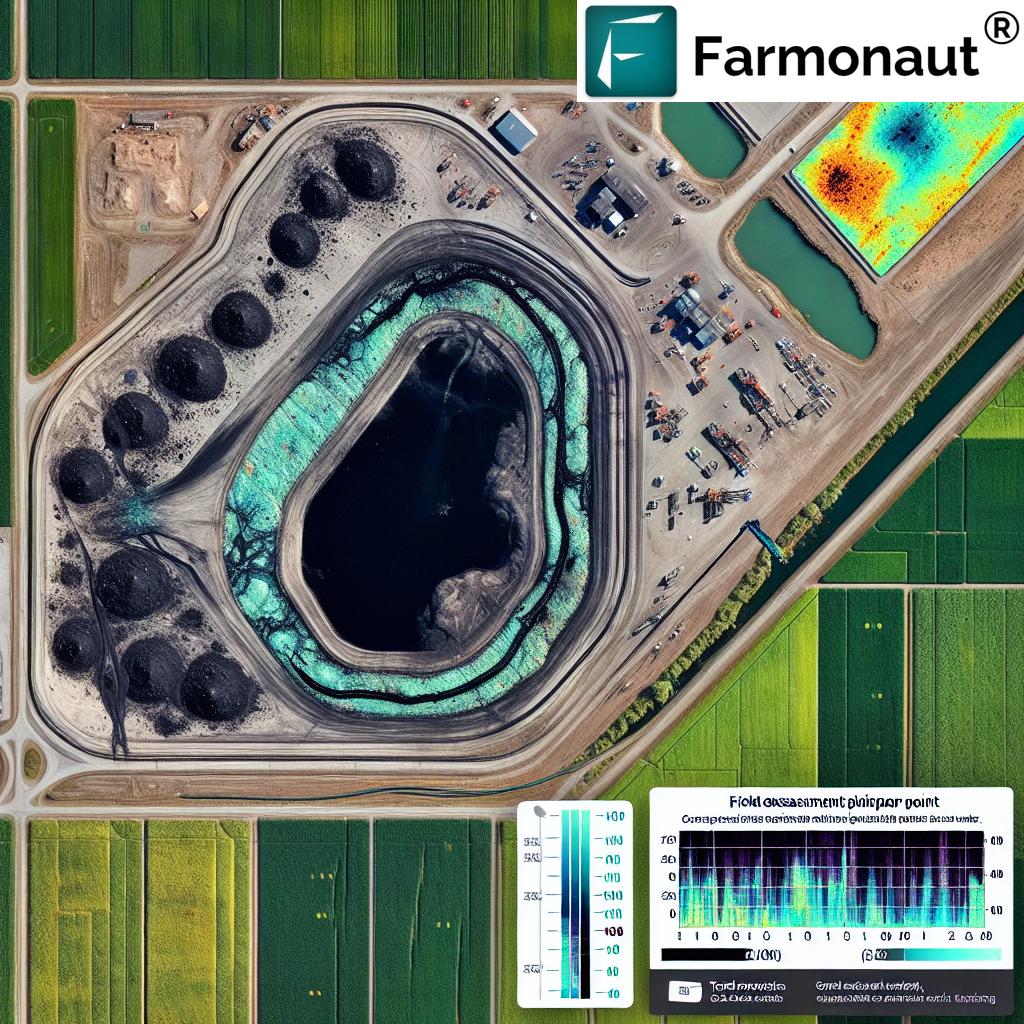Revolutionizing Solar Energy: How American-Made Innovations Are Powering the Future of Renewable Solutions in Phoenix
“A milestone partnership celebrated 100 successful solar installations, showcasing the power of American-made solar structures and innovative tracker manufacturing.”
In the heart of Phoenix, Arizona, a solar energy revolution is underway. As we delve into the exciting world of renewable energy solutions, we’re witnessing firsthand how American-made innovations are shaping the future of sustainable power generation. This blog post explores the cutting-edge advancements in solar power technology, from utility-scale projects to commercial and industrial applications, highlighting the transformative impact of domestic expertise and ingenuity.
The Dawn of a New Solar Era
The solar industry is experiencing unprecedented growth, driven by technological advancements, decreasing costs, and a global push towards cleaner energy sources. At the forefront of this revolution are American companies leading the charge with innovative solar tracker manufacturing and state-of-the-art mounting solutions.
In Phoenix, we’re seeing a perfect storm of factors converging to create an ideal environment for solar energy projects:
- Abundant sunshine year-round
- Supportive local policies
- Growing demand for sustainable energy solutions
- Advancements in solar technology
These elements have set the stage for a solar boom that’s not just powering homes and businesses but also driving economic growth and job creation in the renewable energy sector.
American-Made Solar Structures: The Backbone of Innovation
One of the key drivers behind the success of solar energy projects in Phoenix and beyond is the quality and reliability of American-made solar structures. Companies like OMCO Solar, headquartered in the United States, are revolutionizing the industry with their factory-direct approach to manufacturing solar trackers and fixed-tilt solutions.
These American-made solar structures offer several advantages:
- Superior quality control
- Shorter lead times
- Reduced transportation costs
- Support for local economies
- Customization capabilities for diverse project requirements
By leveraging domestic supply chains and expertise, these manufacturers are not only ensuring the highest standards of production but also fostering innovation that keeps America at the forefront of solar technology.

Solar Tracker Manufacturing: Precision in Motion
A significant leap forward in solar energy efficiency comes from the advancements in solar tracker manufacturing. These sophisticated systems allow solar panels to follow the sun’s movement throughout the day, maximizing energy capture and dramatically increasing the output of solar installations.
Key innovations in solar tracker technology include:
- AI-driven predictive maintenance
- Weather-responsive positioning
- Enhanced durability for harsh environments
- Integrated energy storage solutions
These advancements not only improve the performance of solar energy systems but also extend their lifespan, making solar an even more attractive investment for businesses and utilities alike.
Utility-Scale Solar Projects: Powering Cities and Industries
The landscape of utility-scale solar projects is changing rapidly, with American innovations leading the way. These large-scale installations are crucial for meeting the growing energy demands of cities and industries while reducing carbon emissions.
In Phoenix, we’re seeing an increasing number of utility-scale solar projects that showcase the potential of American-made solar technologies:
- Vast solar farms spanning hundreds of acres
- Integration with smart grid technologies
- Hybrid solar-plus-storage solutions for 24/7 power availability
- Floating solar installations on reservoirs and water bodies
These projects are not just about generating clean energy; they’re about reimagining our entire energy infrastructure for a sustainable future.
Commercial Solar Systems: Empowering Businesses
The adoption of commercial solar systems is accelerating as businesses recognize the dual benefits of reduced energy costs and enhanced sustainability credentials. In Phoenix, we’re witnessing a surge in commercial solar installations across various sectors:
- Retail centers
- Office complexes
- Manufacturing facilities
- Educational institutions
These commercial solar systems are tailored to meet the specific needs of each business, often incorporating cutting-edge technologies like:
- Building-integrated photovoltaics (BIPV)
- Solar carports with EV charging capabilities
- Energy management systems for optimized consumption
By embracing solar power, businesses in Phoenix are not only reducing their operational costs but also positioning themselves as leaders in corporate sustainability.
Distributed Generation Solar: Democratizing Energy Production
One of the most exciting trends in the solar industry is the rise of distributed generation solar. This approach involves deploying smaller-scale solar installations across multiple locations, rather than relying on centralized power plants.
Distributed generation solar offers numerous advantages:
- Increased grid resilience
- Reduced transmission losses
- Empowerment of local communities
- Faster deployment and scalability
In Phoenix, we’re seeing innovative applications of distributed generation solar, such as community solar projects that allow residents to benefit from solar energy even if they can’t install panels on their own roofs.
Industrial Solar Energy Applications: Powering Manufacturing
The industrial sector is a significant energy consumer, making it a prime candidate for solar energy adoption. In Phoenix, industrial solar energy applications are transforming how factories and production facilities operate.
Key industrial solar innovations include:
- High-temperature solar thermal systems for process heat
- Solar-powered desalination for water-intensive industries
- Integrated solar and energy storage for consistent power supply
- Solar-powered hydrogen production for clean fuel
These applications not only reduce operational costs for industries but also significantly lower their carbon footprint, aligning with global sustainability goals.
“The collaboration’s success spans diverse terrains and applications, from utility-scale projects to commercial and industrial solar energy systems.”
Overcoming Challenges: Engineering and Design Innovations
The success of solar energy projects in Phoenix and beyond is largely due to innovative engineering and design solutions that address unique challenges:
- Heat management in extreme desert climates
- Dust mitigation for optimal panel performance
- Water conservation in cleaning and maintenance
- Integration with existing grid infrastructure
American companies are at the forefront of developing these solutions, leveraging advanced materials science, AI-driven predictive maintenance, and innovative cooling technologies to ensure solar installations operate at peak efficiency even in the harshest conditions.

The Role of Domestic Supply Chains in Solar Success
The importance of robust domestic supply chains in the solar industry cannot be overstated. American manufacturers of solar mounting solutions and trackers are playing a crucial role in ensuring the reliability and efficiency of solar installations across the country.
Benefits of domestic solar supply chains include:
- Reduced dependence on international suppliers
- Faster response to market demands
- Enhanced quality control
- Support for local economies and job creation
By strengthening domestic supply chains, the American solar industry is not only boosting its competitiveness but also enhancing national energy security.
Solar Project Management and Construction: Setting New Standards
The success of solar energy projects heavily relies on effective project management and construction practices. In Phoenix, we’re seeing new standards being set in this area, driven by innovative approaches and technologies:
- 3D modeling and virtual reality for project planning
- Drone-assisted site surveys and inspections
- Modular construction techniques for faster deployment
- Advanced project management software for real-time tracking and optimization
These advancements are significantly reducing project timelines and costs while ensuring the highest quality standards in solar installations.
The Future of Renewable Energy in Phoenix and Beyond
As we look to the future, the prospects for renewable energy in Phoenix and across the United States are incredibly bright. The innovations in solar energy technology, coupled with supportive policies and growing public awareness, are setting the stage for a clean energy revolution.
Key trends shaping the future of renewable energy include:
- Integration of AI and machine learning in solar energy management
- Development of next-generation photovoltaic materials
- Expansion of solar-plus-storage solutions
- Increased focus on circular economy principles in solar manufacturing
These advancements promise to make solar energy even more efficient, affordable, and accessible to all.
Comparative Analysis of Solar Energy Solutions
| Solar Solution Type | Primary Application | Key Features | Estimated Energy Output | Installation Complexity | Environmental Impact |
|---|---|---|---|---|---|
| Utility-scale Solar Projects | Large-scale power generation | Vast arrays, advanced tracking systems | 100+ MW | High | Medium |
| Commercial Solar Systems | Business energy needs | Rooftop/ground-mount, customized solutions | 100 kW – 5 MW | Medium | Low |
| Distributed Generation Solar | Local power distribution | Multiple small-scale installations | 10 kW – 1 MW | Low | Low |
| Industrial Solar Energy Applications | Manufacturing processes | High-temp systems, process integration | 1 MW – 50 MW | High | Medium |
| Agribusiness Solar Solutions | Agricultural operations | Dual-use land, specialized equipment | 50 kW – 2 MW | Medium | Low |
Conclusion: Embracing a Solar-Powered Future
As we’ve explored throughout this blog post, the solar energy revolution in Phoenix is a testament to the power of American innovation and ingenuity. From cutting-edge solar tracker manufacturing to advanced project management techniques, every aspect of the solar industry is being transformed by home-grown expertise and technology.
The success of solar energy projects across utility, commercial, and industrial sectors demonstrates the versatility and potential of solar power to meet our diverse energy needs. As we continue to push the boundaries of what’s possible in renewable energy, we’re not just generating clean electricity – we’re building a more sustainable, resilient, and prosperous future for all.
In Phoenix and beyond, the future of energy is bright, and it’s powered by the sun. As we embrace these American-made innovations, we’re not just revolutionizing the energy industry; we’re paving the way for a cleaner, greener world for generations to come.
FAQ Section
Q: What are the main advantages of American-made solar structures?
A: American-made solar structures offer superior quality control, shorter lead times, reduced transportation costs, support for local economies, and customization capabilities for diverse project requirements.
Q: How do solar trackers improve energy efficiency?
A: Solar trackers follow the sun’s movement throughout the day, maximizing energy capture and increasing the output of solar installations by up to 25-35% compared to fixed-tilt systems.
Q: What are some innovative applications of solar energy in industrial settings?
A: Industrial solar applications include high-temperature solar thermal systems for process heat, solar-powered desalination, integrated solar and energy storage for consistent power supply, and solar-powered hydrogen production for clean fuel.
Q: How is distributed generation solar changing the energy landscape?
A: Distributed generation solar increases grid resilience, reduces transmission losses, empowers local communities, and offers faster deployment and scalability compared to centralized power generation.
Q: What role do domestic supply chains play in the success of solar projects?
A: Domestic supply chains reduce dependence on international suppliers, enable faster response to market demands, enhance quality control, and support local economies and job creation in the solar industry.
Earn With Farmonaut: Affiliate Program
Earn 20% recurring commission with Farmonaut’s affiliate program by sharing your promo code and helping farmers save 10%. Onboard 10 Elite farmers monthly to earn a minimum of $148,000 annually—start now and grow your income!
For developers interested in integrating satellite and weather data into their applications, check out Farmonaut’s API and the comprehensive API Developer Docs.

















Appreciate it for this wonderful post, I am glad I noticed this internet site on yahoo.